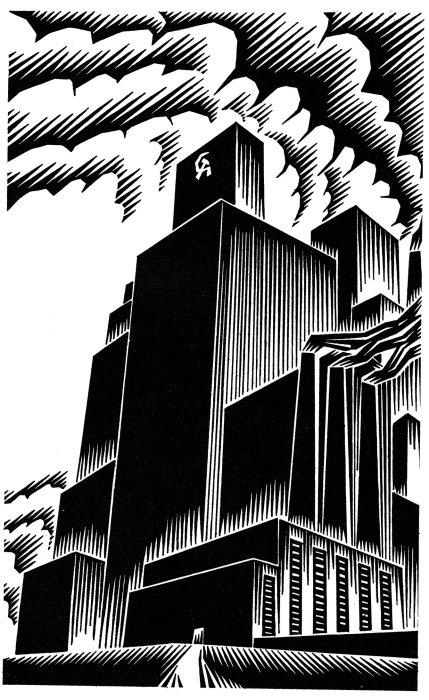|
|||||||||||||
|
Letter to the Marxist-Leninist Party of Canada
Greetings, There was something particularly interesting that caught my eye on your website. It was this quote: "Mr. Chairman, you must admit that a society such as ours is based on large-scale production in which tens of thousands of people work together to produce all the material blessings which we all enjoy. Is it not a pity that a society which entrusts these tens of thousands of working people with the production of material blessings, reduces their participation in the process of governing to one of exercising their right to vote?" It's from "Brief to the Royal Commission on Electoral Reform and Party Financing," Sept. 20, 1990. As a collectivist, I am always interested in the different and various means that an individual can take to achieve a world free from social, economic, and political oppression. The program of Marx, Lenin, and Mao was identical: it was a political approach to the question. They each sought to establish the rights of the working class by seizing state power. If the proletariat can wield the tools of government, then they will be able to fully realize the Communist dream. Unfortunately, party campaigning, or usurping government authority in any way, has done very little to truly realize the Communist dream. The government of Lenin abolished the rights of the workers to organize, to strike, to boycott, to picket, and finally, the right to vote and speak were also taken away. Stalin carried in those footsteps to their logical end; as Heinrich Heine once said, "Where they have burned books, they will end in burning human beings." Castro's government continues to follow similar tactics with less extremism and severity than that of the Soviet government. There is still censorship, oppression, and no right to organize among the workers. Mao's government was perhaps the perfect expression of this sentiment. In none of these organizations were the rights of the workers recognized; to say they were upholding the Communist dream would be absurd. As Marx himself once said, "The first socialists (Fourier, Owen, Saint-Simon, etc.), since social conditions were not sufficiently developed to allow the working class to constitute itself as a militant class, were necessarily obliged to limit themselves to dreams about the model society of the future and were led thus to condemn all the attempts such as strikes, combinations or political movements set in train by the workers to improve their lot. But while we cannot repudiate these patriarchs of socialism, just as chemists cannot repudiate their forebears the alchemists, we must at least avoid falling back into their mistakes, which, if we were to commit them, would be inexcusable." ["Political Indifferentism," 1873, from the French by Bignami, source: The Plebs, Vol. XIV, London 1922.] In what ways did the workers shake the world? In the 1919 General Strike of Canada, thousands of workers walked out of there jobs. The resulting oppression from the government brought the issue to the public view, voting the conservative party out of office at the next national election. Work stoppages, strikes, boycotts, and grassroots community organizing have succeeded some impressive accomplishments. Politicians tend to be easily corruptible and often temperamental in their egoism. Entrusting them with the unrecallable duty of fulfilling the Communist dream has done very little. The only way that the workers will be able to achieve the Communist dream is by gaining operating control of the means of production of society, in the most direct fashion possible: a massive federation of unions. Socialist Parties have done little to advance the workers cause; what legislation they did claim was only at the support of a massive, grass-roots organization, most often associated with federated labor unions. That is the idea of Bakunin, though, not the idea of Lenin. I am curious about anyone who is a Leninist. Which idea of Democracy of his should we follow? In 1906, he said, "What is a 'popular Constituent' Assembly? It is an assembly which, in the first place, really expresses the will of the people. To this end we must have universal suffrage in all of its democratic aspects, and a full guarantee of freedom to conduct the election campaign. It is an assembly which, in the second place, really has the power and authority to 'inaugurate' a political order which will ensure the sovereignty of the people." ["Democratic Tasks of the Revolutionary Proletariat," Lenin, Proletary, No. 4, June 17 (4), 1906..] But, in 1917, after organizing the Soviet government, he writes, "...the democratic republic, the Constituent Assembly, general elections, etc., are, in practice, the dictatorship of the bourgeoisie, and for the emancipation of labor from the yoke of capital there is no other way but to replace this dictatorship with the dictatorship of the proletariat." ["'Democracy' and Dictatorship," December 23, 1918.] Should we believe that universal suffrage and the right to participate in the government are the absolute fundamentals to Communist Revolution, or should we argue that Democracy and Dictatorship are face-words that mean nothing and ignore the hows and whys of power? In anarchy and communism,
|



